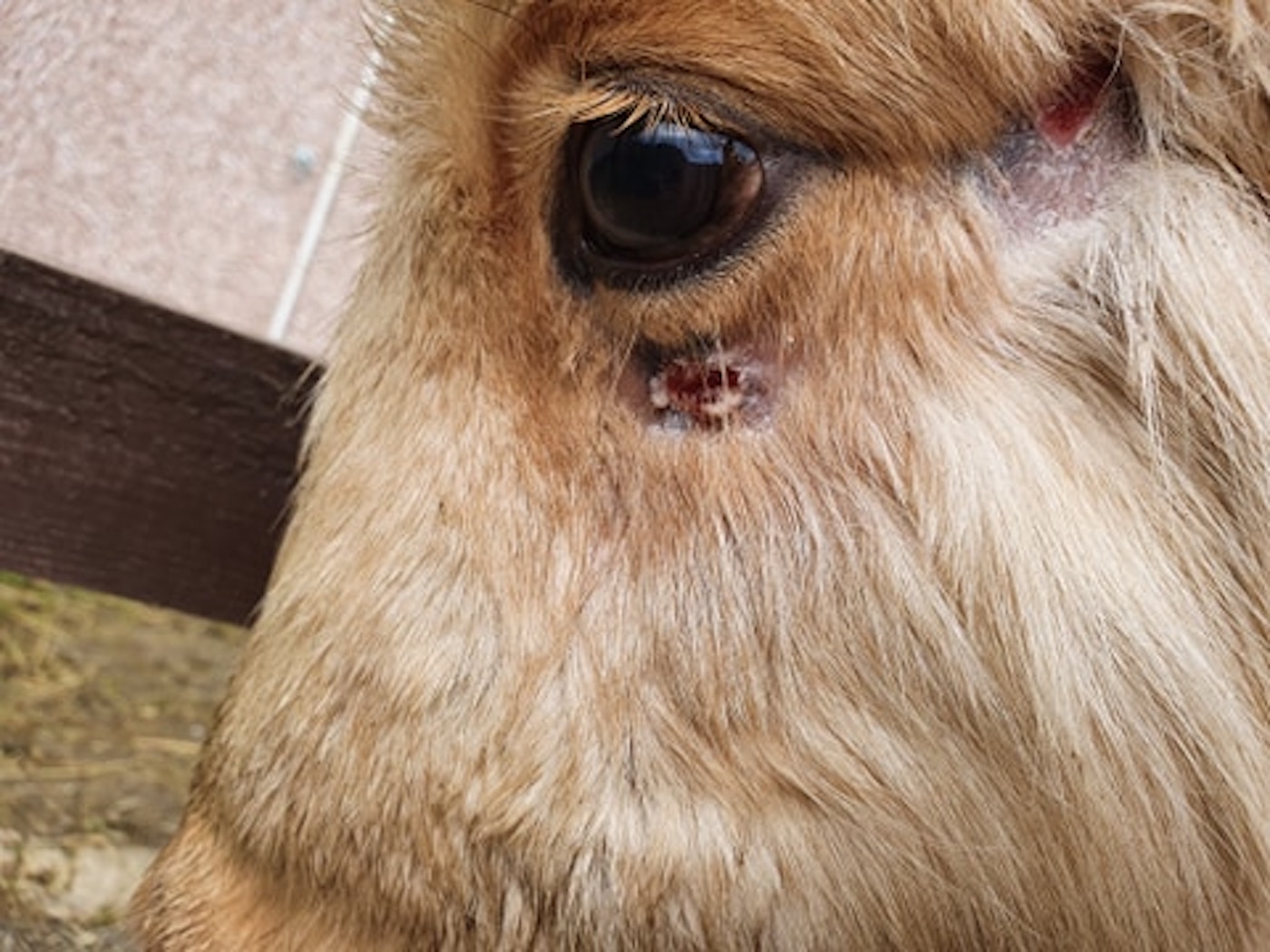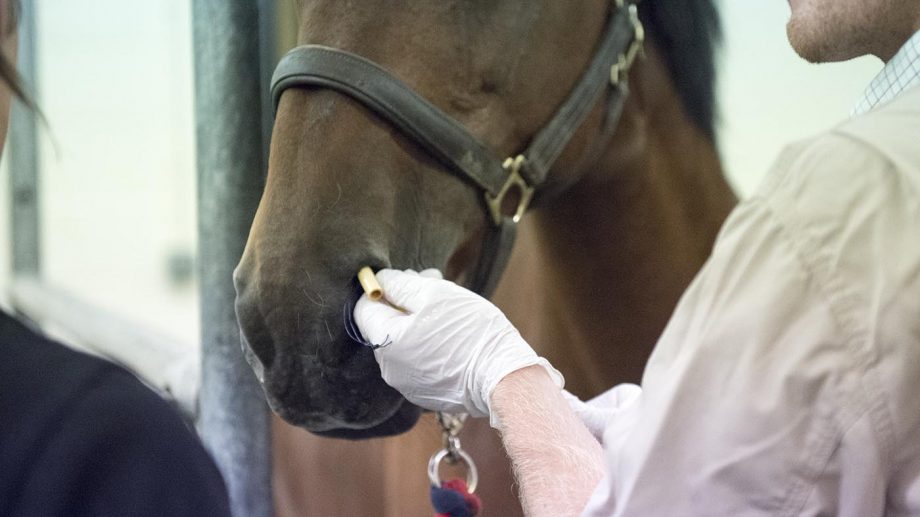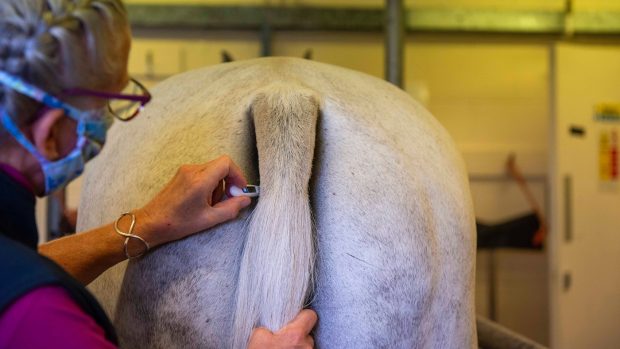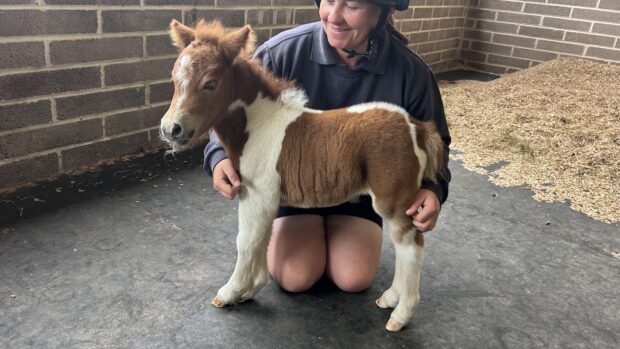As the 2021 national Strangles Awareness Week (3-9 May) draws to a close, an owner who almost lost her miniature Shetland pony to strangles hopes to raise more awareness of the disease and encourage others to speak out.
Falkirk-based Sandy Trimmer, who runs the Unicorn Experience offering photograph sessions for children with ponies to help grow confidence, bought then five-month-old Teddy in October 2020, and he became unwell the day after he arrived.
Sandy, who was keeping Teddy with Pumpkin, one of her other ponies, at her home, said he was lying down a lot and placed his head in her lap.
“He had been wormed and microchipped before he left his breeder the day before and at first I thought he maybe had a sore tummy, but I realised he was struggling to stand up and walk so I got the vet,” she told H&H.
“His temperature was off the scale and he was grinding his jaw side to side and drooling.”
Teddy was diagnosed with strangles and given painkillers.
“Under his throat was swollen and the vet advised to hold hot towels around his throat three times a day,” she said.
“About three to four days later he developed a ping-pong ball-sized swelling on his neck. The vet came back and said his immune system was struggling and the site of his microchip had become infected. She cut his neck to drain the pus, and his microchip came out.”
Teddy’s health issues continued and he developed a swelling underneath his eye.

“His eye was filling with pus, and I noticed a lump on his head between his eye and his ear. I was told by the vet to massage it and eventually pus came out from the abscess under his eye so it was tracking down,” said Sandy.
“The abscesses under his throat had burst and he had no skin left on the area. They looked disgusting, it was awful but throughout everything he somehow managed to keep on eating.”
Sandy said eventually the abscesses healed. In February both ponies were scoped for strangles and received the all-clear.
“We had to wait a while for Teddy to grow to be scoped as he was so little, the vet said he was the smallest they had ever scoped,” she said.
“It was such a relief for him to be given the all-clear; three times we thought we were going to lose him and so many times I was on the phone to the vets in tears. At the time I was concentrating on getting him through it but when I look back I see how tiny he was. Three different vets at Clyde Vet Group treated him throughout the time he was ill, they were absolutely amazing.”
Sandy, whose other ponies never came into contact with Teddy and were kept at a different location, said she spoke openly to “everyone” about Teddy having strangles and hopes to raise awareness of the disease.
“I didn’t want friends who have horses coming to visit and I made sure if I had to go to the feed shop I did this first thing before dealing with Teddy. I was constantly using disinfectant,” she said.
Continued below…

Ambassadors sought to help raise strangles awareness and end stigma
The annual Strangles Awareness Week takes place 3-9 May and aims to provide owners, yard managers, vets and equine professionals

Milestone strangles research tracks strains across world

Subscribe to Horse & Hound magazine today – and enjoy unlimited website access all year round
“People still don’t know enough about strangles and are scared to speak out. I’ve been on yards in the past where it’s been advised not to tell people about strangles as people think they will be blamed, but you have to be open about it and I wish people wouldn’t hide it.”
Strangles Awareness Week is a collaborative effort between the British Horse Society, Intervacc, Keeping Britain’s Horses Healthy, Redwings Horse Sanctuary, Scotland’s Rural College’s Premium Assured Strangles Scheme (PASS), Surveillance of Equine Strangles (SES), The (Dick) Royal School of Veterinary Studies and World Horse Welfare. The annual initiative aims to provide horse owners, yard managers, vets and equine professionals with a platform to share their own stories and promote support for those affected by the disease.
This year’s campaign features a series of podcasts with people from across the equestrian industry sharing their experiences of the disease. There is also free resources and support available for those who may be tackling outbreaks.
Horse & Hound magazine, out every Thursday, is packed with all the latest news and reports, as well as interviews, specials, nostalgia, vet and training advice. Find how you can enjoy the magazine delivered to your door every week, plus options to upgrade to access our H&H Plus online service which brings you breaking news as it happens as well as other benefits.




